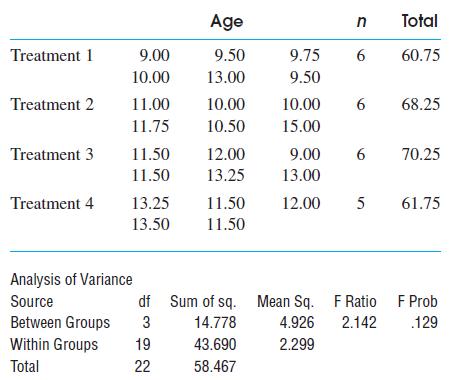Parents are frequently concerned when their child seems slow to begin walking (although when the child finally
Question:
Parents are frequently concerned when their child seems slow to begin walking (although when the child finally walks, the resulting havoc sometimes has the parents wishing they could turn back the clock!). The article “Walking in the Newborn” (Science, 176 [1972]: 314–315) reported on an experiment in which the effects of several different treatments on the age at which a child first walks were compared. Children in the first group were given special walking exercises for 12 min per day beginning at age 1 week and lasting 7 weeks. The second group of children received daily exercises but not the walking exercises administered to the first group. The third and fourth groups were control groups: They received no special treatment and differed only in that the third group’s progress was checked weekly, whereas the fourth group’s progress was checked just once at the end of the study. Observations on age (in months) when the children first walked are shown in the accompanying table. Also given is the ANOVA table, obtained from the SPSS computer package.

a. Verify the entries in the ANOVA table.
b. State and test the relevant hypotheses using a significance level of .05.
Step by Step Answer:

Introduction To Statistics And Data Analysis
ISBN: 9780495118732
3rd Edition
Authors: Roxy Peck, Chris Olsen, Jay L. Devore





